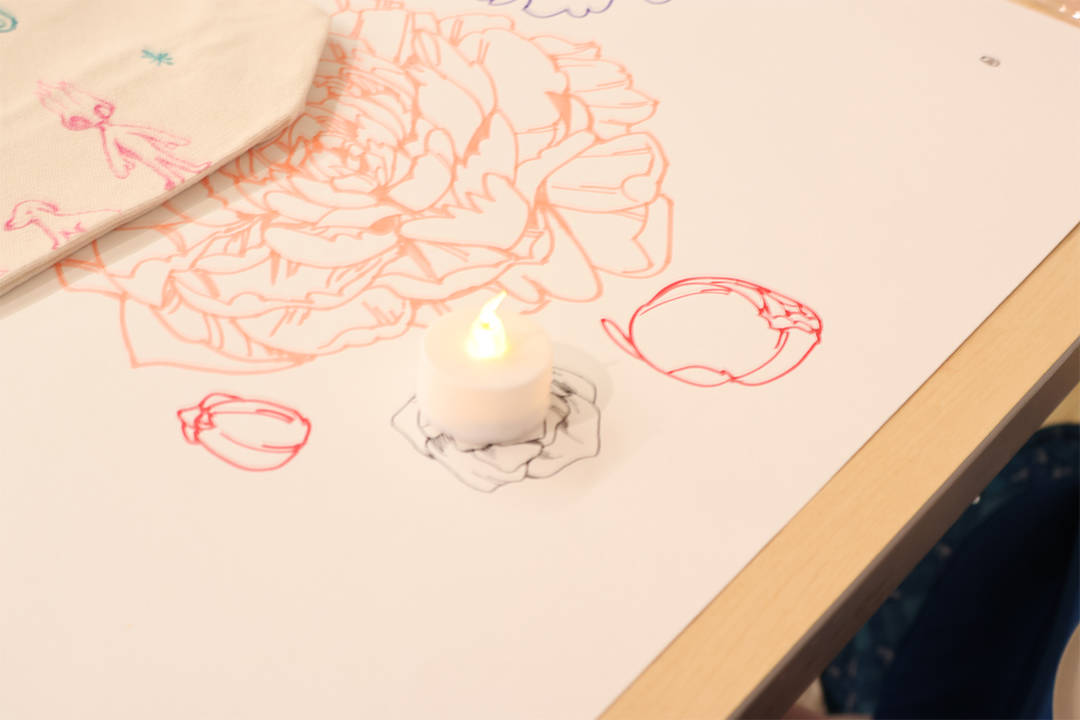Content warning: This article discusses anti-trans violence and mentions death.
On November 20, the Sexual and Gender Diversity Office (SGDO) held a vigil and art event for Trans Day of Remembrance and Resilience (TDoRR) — an annual observance honouring trans, two-spirit, and gender-diverse people who have died as a result of anti-trans violence.
Groups across U of T also held workshops, art-based events, and a film screening during Transgender Awareness Week, which takes place from November 13–19 each year to increase awareness of the issues faced by trans people.
Trans Day of Remembrance and Resilience
According to US-based LGBTQ+ advocacy organization GLAAD, transgender advocate Gwendolyn Ann Smith founded TDoRR in 1999 as a vigil to commemorate Rita Hester — a Black trans woman murdered in the US the year before — and all those killed since Hester’s death.
This year, groups and universities across Toronto — including 2SLGBTQ+ community organization The 519 and Toronto Metropolitan University — held events to mark the occasion. Among transgender or nonbinary people aged 15 and older nationwide, nearly two out of five of them reside in Ontario, and 15.3 per cent of non-binary people live in Toronto, according to the 2021 Canadian census.
International human rights organization Amnesty International released an article in May condemning rising levels of hate, online abuse, and harmful legislation targeting 2SLGBTQ+ people in Canada. The article references a Statistics Canada study conducted in 2018 that found that trans Canadians were more likely than cisgender Canadians to have been physically or sexually assaulted.
In September, anti-2SLGBTQ+ groups held demonstrations across the country, including in Queen’s Park — which is adjacent to UTSG. U of T students and community groups organized and engaged in counterprotests and organized a safe walk program.
The event
On November 20, the SGDO held an event at the Multi-Faith Centre. With music playing, around 30 people — including students and university staff — made buttons and bracelets; drew flowers and other artwork on pieces of butcher paper; conversed; and ate samosas and muffins. Some students wrote affirming statements such as “Be proud of yourself” and “Trans voices matter” on blank tote bags.
“I really like the inclusion of [art] because it’s such a heavy day for a lot of people,” Mar Tran, a librarian at the Engineering and Computer Science Library, told The Varsity.
Second-year socio-cultural and linguistic anthropology and diaspora and transnational studies double-major MJ — who requested that The Varsity avoid sharing their last name because they are not out to some people in their life — works as a trans and non-binary programming assistant for the SGDO. In an email to The Varsity, they wrote that the art-focused event provided a mental break for students. They also highlighted the importance of art as a “powerful means of expressing identity.”
At the event, SGDO staff passed out tea lights to participants. After a land acknowledgement from MJ, Scout Swartz — a program coordinator at the SGDO — spoke about the barriers “to live freely” faced by trans people, particularly those with other marginalized identities. They paused for a moment of silence to remember those lost.
Advocacy network Transgender Europe, which includes member organizations and partnerships with groups in more than 150 countries, announced on November 13 that 321 trans and gender-diverse people had been reported murdered between October 1, 2022 and September 30, 2023. Racialized trans people make up 80 per cent of those reported murdered.
“While there can be moments of dysphoria and even violence and sadness along that path, my hope is for folks that [transition] can also be a path of joy where we find euphoria, community, family, and this rootedness in our truth,” Swartz told the crowd.
In an interview with The Varsity, Swartz discussed how the SGDO views holding events that honour peoples’ experiences and grief as part of its responsibility to create “a greater sense of belonging” for trans and non-binary people on campus amid increased violence against 2SLGBTQ+ people.
The SGDO hosts a drop-in group every Thursday for 2SLGBTQ+ students called Queer and Trans Connections. The office also holds events specifically geared toward students with multiple marginalized identities, such as a Black Queer and Trans Student Space.
When asked about offering events for people with multiple marginalized identities, SGDO Acting Director David Pereira told The Varsity, “I think if we aren’t doing that, then we’re missing the mark, right? We’re missing where students are at and what their needs are.” He discussed the importance of providing events where people can bring multiple parts of themselves to the space.
Pereira also highlighted the importance of community members engaging with the SGDO. “You hope that people will bring the energy that really feeds a group of people,” he said. “It was that today.”



No comments to display.